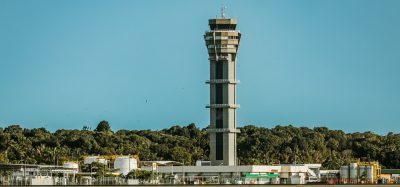AIRE: Reduced noise and emissions on first complete transatlantic green flights
Posted: 8 April 2010 | SESAR | No comments yet
The two first complete (gate-to-gate) green transatlantic flights were operated on 6 & 7 April from Paris-Charles de Gaulle to Miami airports…
The two first complete (gate-to-gate) green transatlantic flights were operated on 6 and 7 April 2010 from Paris-Charles de Gaulle to Miami airports. The flights were carried out by Air France (6 April) and American Airlines (7 April). This marks a new milestone for the AIRE (Atlantic Interoperability Initiative to Reduce Emissions) programme, a joint initiative between the European Commission and the FAA. AIRE is the green component of the SESAR programme.
During the approximately nine hours flight, enhanced procedures were used to improve the aircraft’s energy efficiency. These procedures, applied at each flight stage and coordinated among all project participants, reduce fuel consumption (and hence carbon dioxide emissions) throughout the flight, from taxiing at Paris-Charles de Gaulle to arrival on the parking stand in Miami.
“I congratulate all the partners involved in this success. Gate-to-gate green flights show that by working together and by making better use of existing technology, we achieve benefits for the environment, airlines and citizens. This is the only way forward and we must do more. Green flights have to become our daily business and cannot remain singular events”, comments Patrick Ky, Executive Director of the SESAR Joint Undertaking.
Join us live: Shaping the Next Generation of Hold Baggage and Air Cargo Screening
Join us live for an insightful webinar on 11th December at 14:00 GMT, in collaboration with Smiths Detection, as we explore the strategic balance of operational efficiency, regulatory compliance, and sustainability in high-volume security environments.
This session offers a focused look into future-proofing your security strategy.
Key learning points
- Cost Reduction: Strategies to minimize bag travel time while simultaneously reducing operational costs.
- Regulatory Roadmap: Insights into the next wave of regulatory changes and their impact on future investment decisions.
- Sustainable Systems: Practical approaches to building sustainability into security systems and lowering the total cost of ownership (TCO).
- Scalable Solutions: Real-world examples of scalable systems supporting current airport growth and preparing for tomorrow.
Register now for expert insights, case studies, and actionable strategies on operational efficiency!
Air France expects that the coordinated application of environmental friendly procedures during the flight cut CO2 emissions by 6-9 tons and save 2-3 tons of jetfuel.
Among the procedures applied are the following:
- Shorter taxiing times, coordinated with Aéroports de Paris at Paris-Charles de Gaulle and with the FAA at Miami airport;
- Continuous ascent, coordinated with DSNA, the French air traffic control service provider;
- During the cruise phase, optimum altitude and speed were selected to reduce fuel consumption in conjunction with en route air traffic control centres in France (DSNA), the UK (NATS), Portugal (Nav-Portugal) and the US (FAA);
- Continuous descent, coordinated by US air traffic control (FAA).
During the departure and arrival phases, the procedures also helped minimise noise levels. Applying these optimisations to all Air France long-haul flights to and from North America, would result in a cut of CO2 emissions by 135,000 metric tons per year, with fuel savings of 43,000 metric tons.
Join our free webinar: Revolutionising India’s travel experience through the Digi Yatra biometric programme.
Air travel is booming, and airports worldwide need to move passengers faster and more efficiently. Join the Digi Yatra Foundation and IDEMIA to discover how this groundbreaking initiative has already enabled over 60 million seamless domestic journeys using biometric identity management.
Date: 16 Dec | Time: 09:00 GMT
rEGISTER NOW TO SECURE YOUR SPOT
Can’t attend live? No worries – register to receive the recording post-event.
Related topics
Related organisations
European Commission, Federal Aviation Administration (FAA), SESAR

















